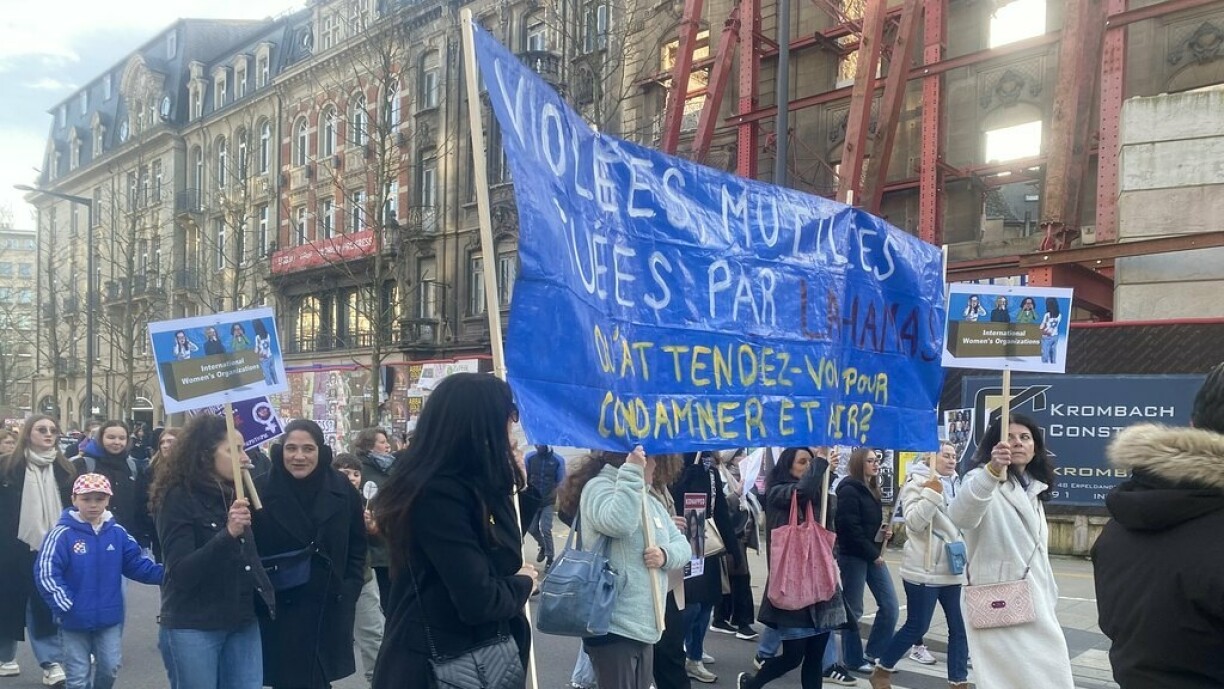
For more than a century, 8 March has been an international opportunity to demand gender equality, drawing attention to women’s rights and concerns. In 28 countries, International Women’s Day is considered a legal holiday; in Germany, this is the case in Berlin and in Mecklenburg-Vorpommern, although Luxembourg has not followed suit. Every IWD sees events organised throughout the country to raise awareness, and on Friday evening, the day was marked by a women’s march through the capital.
Demonstrators gathered just after 5pm to start the march, with early reports suggesting around a thousand people participated, including cross-party political representatives and Minister for Equality Yuriko Backes.
A group of pro-Palestine demonstrators joined the march, adding calls of “Free Palestine” to the protest. The organisers of the women’s march said they weren’t happy the march had been used for other political purposes, but added that they couldn’t do much to prevent it.
The march proceeded without incident, with city police ensuring there was a clear route for the demonstrators from Place de Paris to Place Guillaume II.
Feminist platform JIF said that although Luxembourg had made progress, there was still a long way to go before securing gender equality in the Grand Duchy, highlighting inequalities in maternity and paternity leave, among others.
The association argued in favour of adjusting the tax system to benefit single parents, 80% of whom are female, and said that long waiting lists for women’s shelters in Luxembourg were putting domestic abuse victims at risk of homelessness.
In 2022, 224 women were victims of domestic violence in the Grand Duchy. One in four women say they have experienced sexual violence at least once in their lifetime.
As for political representation, JIF says there is room for improvement: Just 19 out of 100 mayors in Luxembourg are women; in the Chamber of Deputies, just 20 out of the 60 elected MPs are female, and just five are ministers out of a cabinet of 15. This discrimination is often intersectional with other minorities, such as the LGBTQIA+ community, people of colour, migrants, the elderly, the disabled, and students.